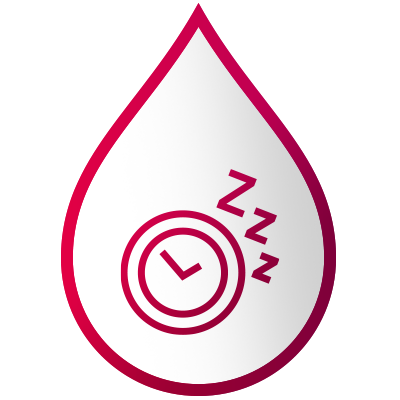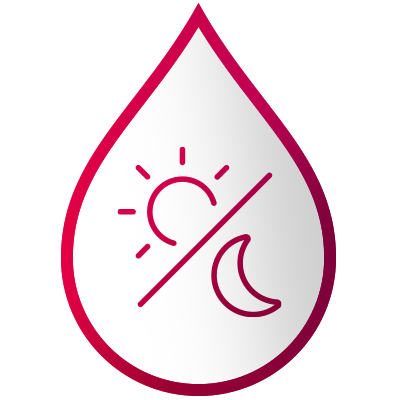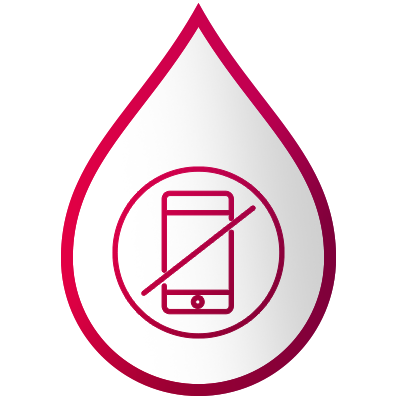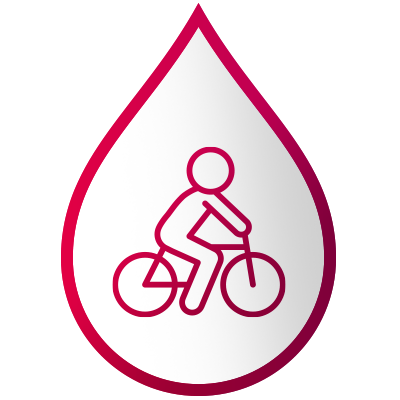Feeling exhausted, irritable, sleepy all the time? Blame it on inadequate sleep. One-third of all adults suffer from insomnia, the most common sleep disorder.1 In fact, women suffer more from poor sleep quality and have a higher risk of insomnia.2 Puberty, pregnancy and menopause are marked with many physical changes and often cause sleep disturbances or sleep disorders.3 Furthermore, women are more prone to IDA and it affects sleep quality and can cause insomnia.4,5 Apart from these, external factors like artificial light at night, high caffeine intake, poor sleep routine, lack of physical activity, work demands, health problems, family responsibilities, increased screen time also cause sleep problems.6 Inadequate sleep can have a negative impact on normal daily life.
Sufficient sleep is when you wake up feeling well-rested and perform well during the day.6 The ideal duration of sleep varies for each individual but on an average, it is around 7 to 7 and 1/2 hours.1 It is not just the number of hours you sleep but sleep timings, sleep consistency, sleep quality and sleep satisfaction are also very important.6
Are you the person who thinks “I can always catch up on sleep later”? Well, think again. Inadequate sleep can cause poor attention, high blood pressure, diabetes, obesity, weak immunity, heart diseases, impaired brain function, mood disorders and loneliness.1,7
So, what can I do to sleep better? Try the following practices:8





You work hard; you deserve good sleep. Good sleep will positively affect your personal as well as professional life.
Reference:
1Worley SL. The Extraordinary Importance of Sleep: The Detrimental Effects of Inadequate Sleep on Health and Public Safety Drive an Explosion of Sleep Research. P T. 2018;43(12):758-763.
2Nowakowski S, Meers J, Heimbach E. Sleep and Women’s Health. Sleep Med Res. 2013;4(1):1-22. doi:10.17241/smr.2013.4.1.1.
3Mallampalli MP, Carter CL. Exploring sex and gender differences in sleep health: a Society for Women’s Health Research Report. J Womens Health (Larchmt). 2014;23(7):553-562. doi:10.1089/jwh.2014.4816.
4Murat S, Ali U, Serdal K, et al. Assessment of subjective sleep quality in iron deficiency anaemia. Afr Health Sci. 2015;15(2):621-627. doi:10.4314/ahs.v15i2.40.
5Neumann SN, Li J-J, Yuan X-D, et al. Anemia and insomnia: a cross-sectional study and meta-analysis. Chin Med J (Engl). 2021;134(6).
6Chaput J-P, Dutil C, Sampasa-Kanyinga H. Sleeping hours: what is the ideal number and how does age impact this? Nat Sci Sleep. 2018;10:421-430. doi:10.2147/NSS.S163071.
7Czeisler CA. Duration, timing and quality of sleep are each vital for health, performance and safety. Sleep Heal. 2015;1(1):5-8. doi:https://doi.org/10.1016/j.sleh.2014.12.008
8CDC - Sleep Hygiene Tips - Sleep and Sleep Disorders. https://www.cdc.gov/sleep/about_sleep/sleep_hygiene.html. Accessed August 11, 2021.
9Harb F, Hidalgo MP, Martau B. Lack of exposure to natural light in the workspace is associated with physiological, sleep and depressive symptoms. Chronobiol Int. 2015;32(3):368-375. doi:10.3109/07420528.2014.982757.
10Dolezal BA, Neufeld E V, Boland DM, Martin JL, Cooper CB. Interrelationship between Sleep and Exercise: A Systematic Review. Adv Prev Med. 2017;2017:1364387. doi:10.1155/2017/1364387.
11Wang W-L, Chen K-H, Pan Y-C, Yang S-N, Chan Y-Y. The effect of yoga on sleep quality and insomnia in women with sleep problems: a systematic review and meta-analysis. BMC Psychiatry. 2020;20(1):195. doi:10.1186/s12888-020-02566-4.







